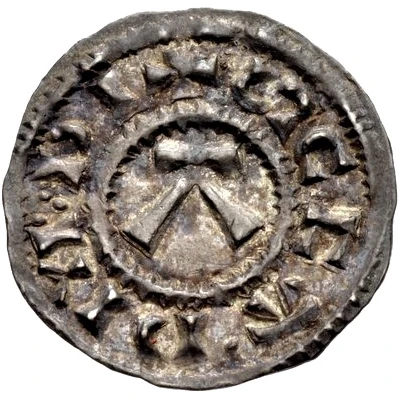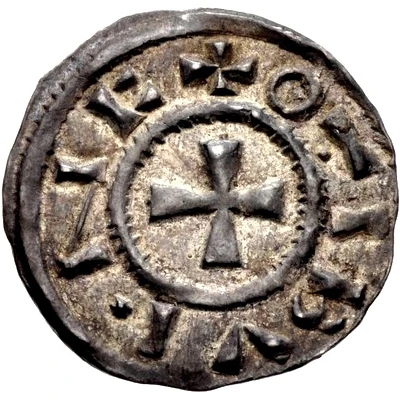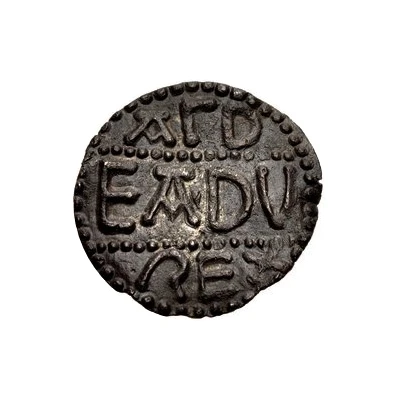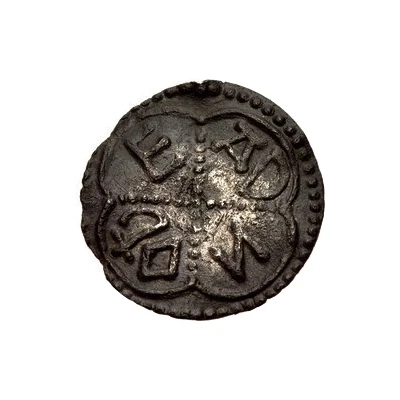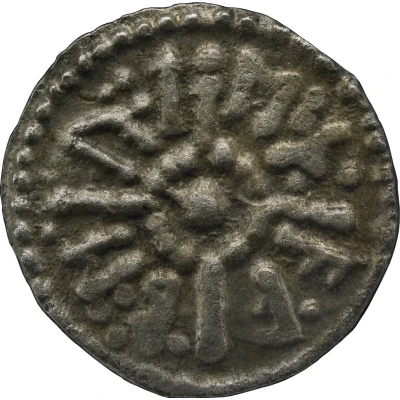
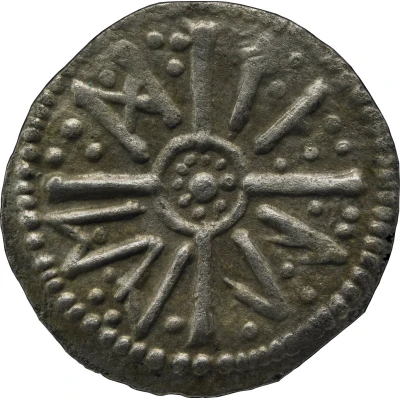

Penny - Æthelberht Alberht
| Silver | 1.2 g | - |
| Issuer | Kingdom of East Anglia (Kingdoms of British Isles and Frisia) |
|---|---|
| King | Alberht (circa 749) |
| Type | Standard circulation coin |
| Years | 749-794 |
| Value | 1 Penny (1⁄240) |
| Currency | Pound |
| Composition | Silver |
| Weight | 1.2 g |
| Shape | Round (irregular) |
| Technique | Hammered |
| Demonetized | Yes |
| Updated | 2024-10-09 |
| Numista | N#138248 |
|---|---|
| Rarity index | 100% |
Reverse
Cross with central rosette in circle, moneyer's name in runic script around.
Script: Runic
Lettering: ti æl re d
Translation: Tilered
Comment
Anglo-Saxon middle period (c.780-973), Kings of East Anglia (c.758-870), Alberht (c.749(conjectural)), minted in East Anglia.
The Spink attribution of Alberht appears for this ruler in a much later and not totally reliable source, whereas the name Aethelberht appears on the coin itself. Since this is contemporary, it seems likely that this is the correct form, and that the form Alberht is a later error. This also seems to be the case with the misreading of his contemporary Beonna, who appears as Hunbeanna in the same source. Given the date, it is unlikely (although we can’t be certain) that this is the same person as the Aethelberht who died in 794, so the two are normally distinguished as Aethelberht I and Aethelberht II.
The images above are reproduced here with kind permission of the Trustees of the British Museum and are shared under a Creative Commons Attribution-NonCommercial-ShareAlike 4.0 International (CC BY-NC-SA 4.0) licence.
Interesting fact
One interesting fact about the Æthelberht (Alberht) Penny is that it features the first recorded use of the name "England" on a coin. The inscription on the coin reads "EALDORITO ENGLE," which translates to "Ealdorito of the Angles." This suggests that the Kingdom of East Anglia, where the coin was minted, was an early precursor to the modern-day country of England.
